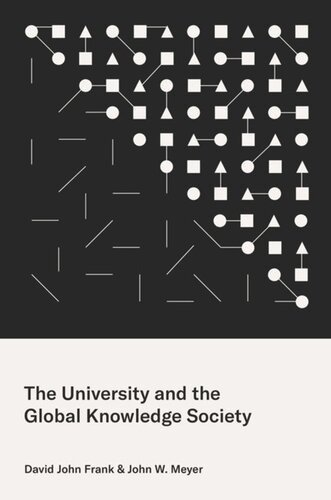

Most ebook files are in PDF format, so you can easily read them using various software such as Foxit Reader or directly on the Google Chrome browser.
Some ebook files are released by publishers in other formats such as .awz, .mobi, .epub, .fb2, etc. You may need to install specific software to read these formats on mobile/PC, such as Calibre.
Please read the tutorial at this link: https://ebookbell.com/faq
We offer FREE conversion to the popular formats you request; however, this may take some time. Therefore, right after payment, please email us, and we will try to provide the service as quickly as possible.
For some exceptional file formats or broken links (if any), please refrain from opening any disputes. Instead, email us first, and we will try to assist within a maximum of 6 hours.
EbookBell Team

5.0
108 reviewsHow the university went global and became the heart of the information age
The university is experiencing an unprecedented level of success today, as more universities in more countries educate more students in more fields. At the same time, the university has become central to a knowledge society based on the belief that everyone can, through higher education, access universal truths and apply them in the name of progress. This book traces the university's rise over the past hundred years to become the cultural linchpin of contemporary society, revealing how the so-called ivory tower has become profoundly interlinked with almost every area of human endeavor.
David John Frank and John Meyer describe how, as the university expanded, student and faculty bodies became larger, more diverse, and more empowered to turn knowledge into action. Their contributions to society underscored the public importance of scholarship, and as the cultural authority of universities grew they increased the scope of their research and teaching interests. As a result, the university has become the bedrock of today's information-based society, an institution that is now implicated in the solution to every conceivable problem.
But, as Frank and Meyer also show, the conditions that helped spur the university's recent ascendance are not immutable: eruptions of nationalism, authoritarianism, and illiberalism undercut the university's universalistic and rationalistic premises, and may threaten the centrality of the university itself.